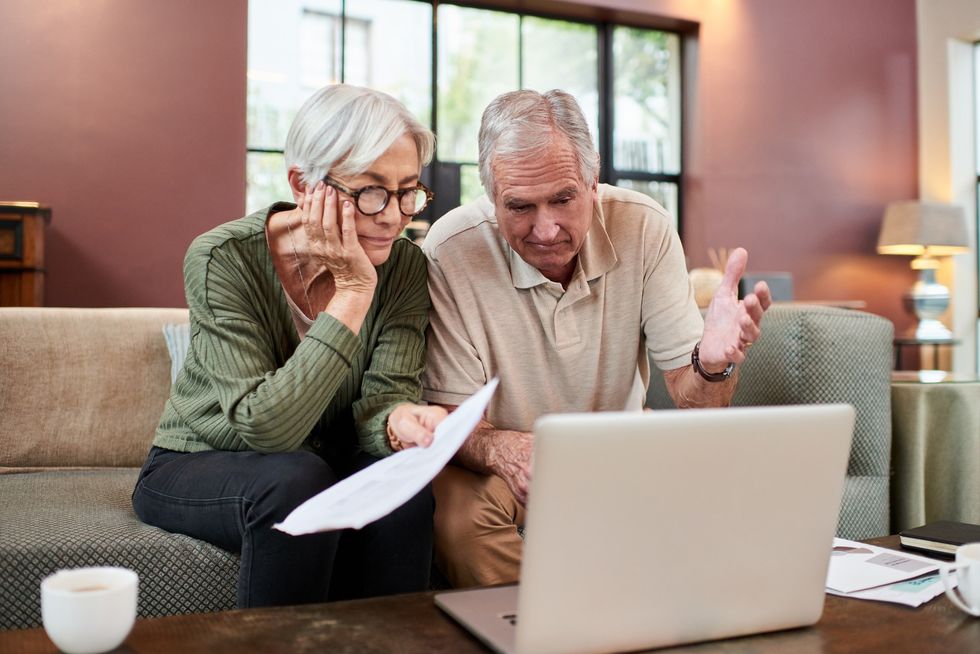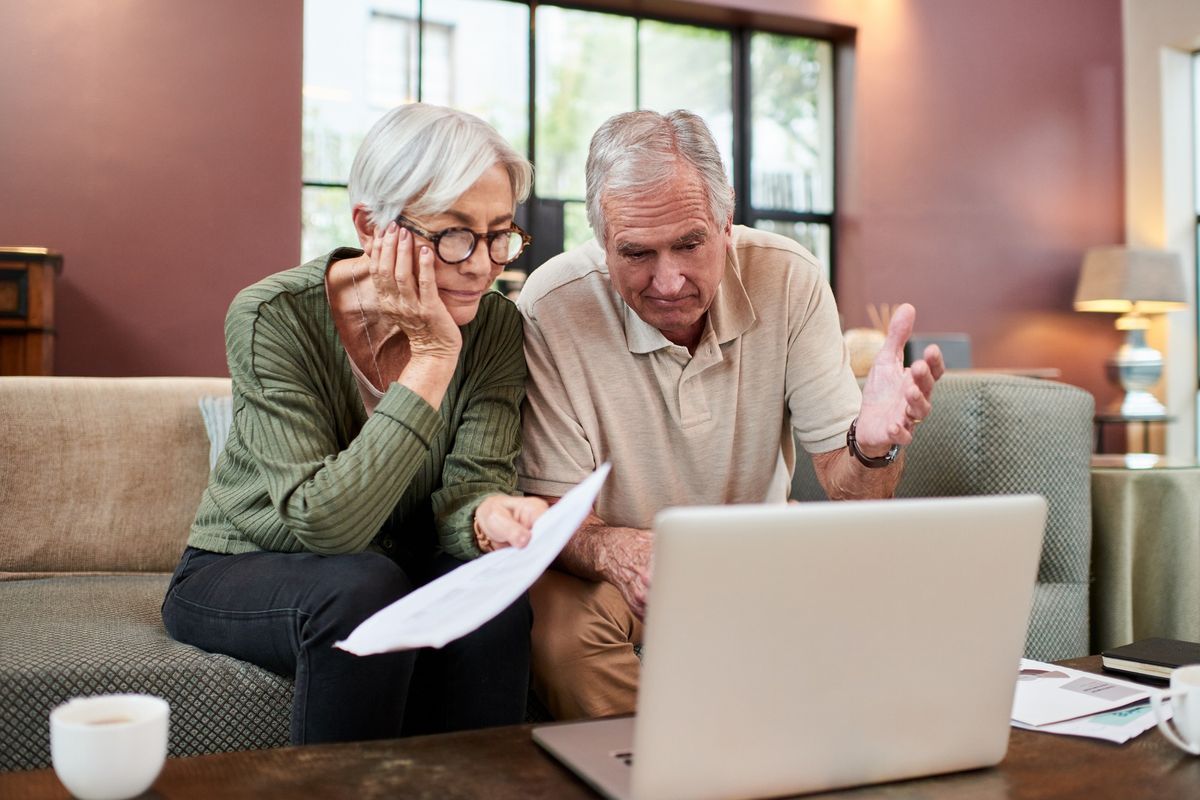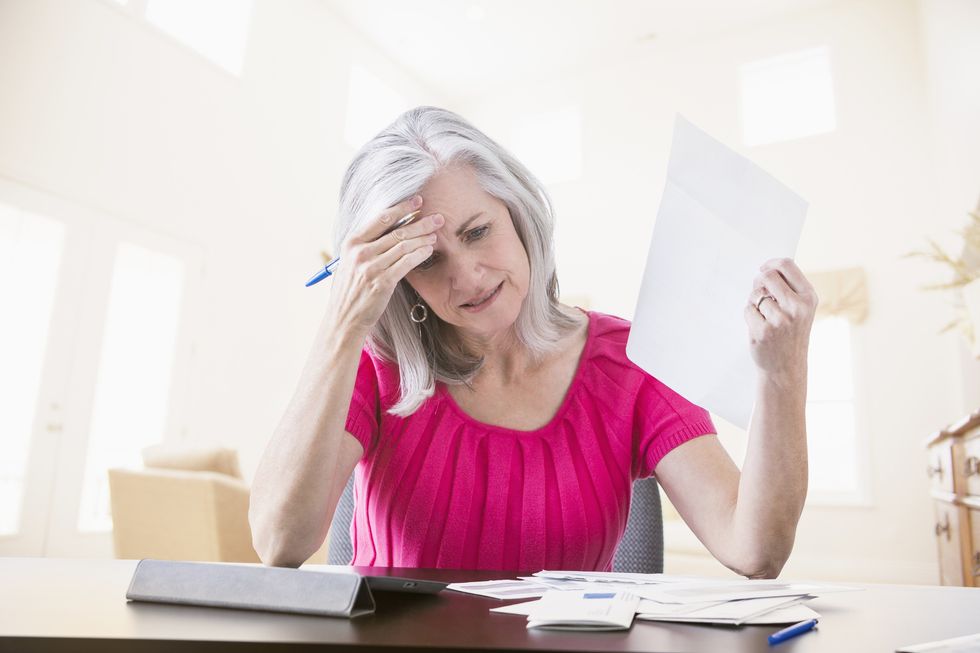'Pensioners are increasingly being taxed - Here's what needs to be done about it', writes Patrick O'Donnell
Older Britons are increasingly being taxed on their state pension. What can be done to stop it?More voters are becoming increasingly aware of the impact of fiscal drag, when tax allowances are frozen at a time when incomes are rising.Under the triple lock, state pensions rise every year by either by the rate of inflation, average earnings or 2.5 per cent.In April, the full, new state pension jumped to just over £11,500. In comparison, the tax-free personal allowance sits at £12,570.While the retirement benefit has not exceed this amount yet, experts have warned this could happen within the next couple of years.As such, older Britons are at risk of being forced to pay tax on their state pension alone for the first time ever.Do you have a money story you’d like to share? Get in touch by emailing money@gbnews.uk.What can pensioners do to lower their tax liability in the face of fiscal drag?While the Conservatives have pledged to introduce the "triple lock plus", which would raise the tax-free allowance for pensions every year, Prime Minister Rishi Sunak's party is trailing in the polls.Labour has a 20-point lead on the Tories and has, so far, stopped short of promising to introduce a similar policy.As such, experts are offering advice to those approaching retirement and GB News readers to help them with the potential tax burden.Sharing exclusive advice with GB News, Tom Minnikin, partner at tax firm Forbes Dawson, broke down how Britons can escape fiscal drag.Minnikin explained: "It is worth noting that alongside the personal allowance there is zero per cent starting rate for savings, which applies to up to £5,000 of savings income, if this forms the first portion of taxable income. "Therefore, pensioners who boost their income with interest on their savings may not be affected by the freezing of the personal allowance. "This may be a good alternative to other forms of income, such as dividends, where the zero per cent rate is limited to £500."LATEST DEVELOPMENTS:'No surprise' as 660,000 more state pensioners dragged into paying taxNationwide and Virgin Money banking apps down: Britons unable to 'receive pension payments'We looked at state pension amounts across Europe - where do you think Britain came in the list?The Forbes Dawson tax expert added: “For wealthier individuals, who may have a variety of savings pots, including private pensions and ISAs, careful planning could help avoid falling into higher tax brackets. "For example, those with flexible pensions may want to reduce the amount they draw down in favour of using up other capital, such as ISAs, which is not taxable.“An alternative is to look at investment bonds. "These can be efficient as they can provide deferral of income and gains – depending on the type of bond – but with the ability to withdraw five per cent of the original investment per annum without incurring any immediate income tax charge.”


Older Britons are increasingly being taxed on their state pension. What can be done to stop it?
More voters are becoming increasingly aware of the impact of fiscal drag, when tax allowances are frozen at a time when incomes are rising.
Under the triple lock, state pensions rise every year by either by the rate of inflation, average earnings or 2.5 per cent.
In April, the full, new state pension jumped to just over £11,500. In comparison, the tax-free personal allowance sits at £12,570.
While the retirement benefit has not exceed this amount yet, experts have warned this could happen within the next couple of years.
As such, older Britons are at risk of being forced to pay tax on their state pension alone for the first time ever.
Do you have a money story you’d like to share? Get in touch by emailing money@gbnews.uk.

What can pensioners do to lower their tax liability in the face of fiscal drag?
While the Conservatives have pledged to introduce the "triple lock plus", which would raise the tax-free allowance for pensions every year, Prime Minister Rishi Sunak's party is trailing in the polls.
Labour has a 20-point lead on the Tories and has, so far, stopped short of promising to introduce a similar policy.
As such, experts are offering advice to those approaching retirement and GB News readers to help them with the potential tax burden.
Sharing exclusive advice with GB News, Tom Minnikin, partner at tax firm Forbes Dawson, broke down how Britons can escape fiscal drag.
Minnikin explained: "It is worth noting that alongside the personal allowance there is zero per cent starting rate for savings, which applies to up to £5,000 of savings income, if this forms the first portion of taxable income.
"Therefore, pensioners who boost their income with interest on their savings may not be affected by the freezing of the personal allowance.
"This may be a good alternative to other forms of income, such as dividends, where the zero per cent rate is limited to £500."
LATEST DEVELOPMENTS:
- 'No surprise' as 660,000 more state pensioners dragged into paying tax
- Nationwide and Virgin Money banking apps down: Britons unable to 'receive pension payments'
- We looked at state pension amounts across Europe - where do you think Britain came in the list?

The Forbes Dawson tax expert added: “For wealthier individuals, who may have a variety of savings pots, including private pensions and ISAs, careful planning could help avoid falling into higher tax brackets.
"For example, those with flexible pensions may want to reduce the amount they draw down in favour of using up other capital, such as ISAs, which is not taxable.
“An alternative is to look at investment bonds.
"These can be efficient as they can provide deferral of income and gains – depending on the type of bond – but with the ability to withdraw five per cent of the original investment per annum without incurring any immediate income tax charge.”







































